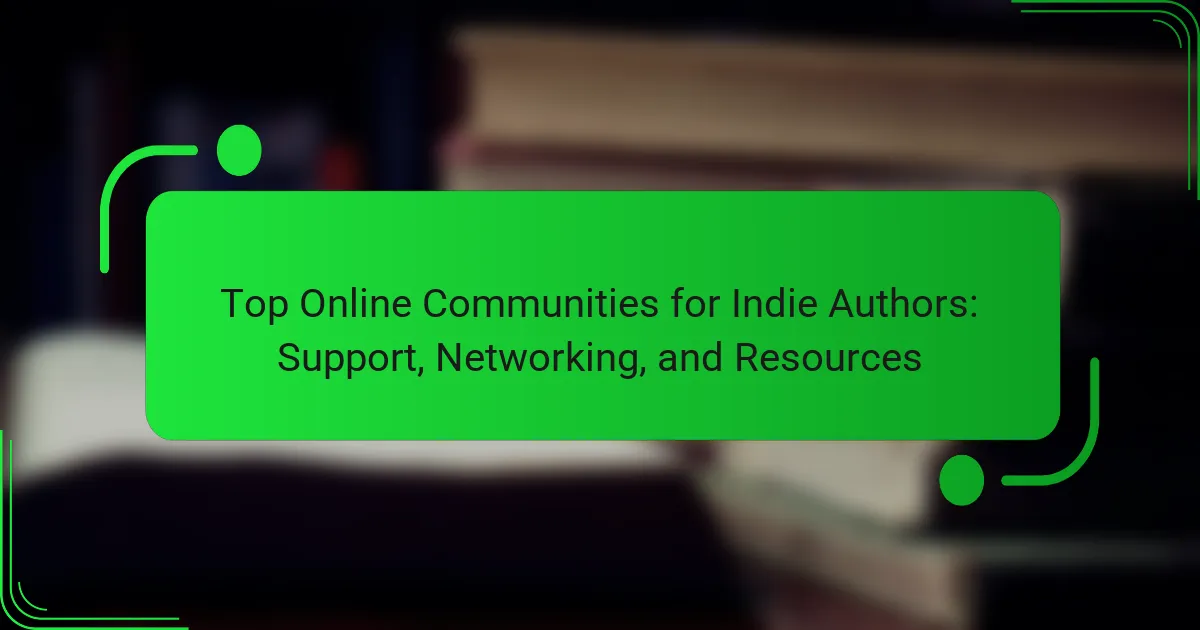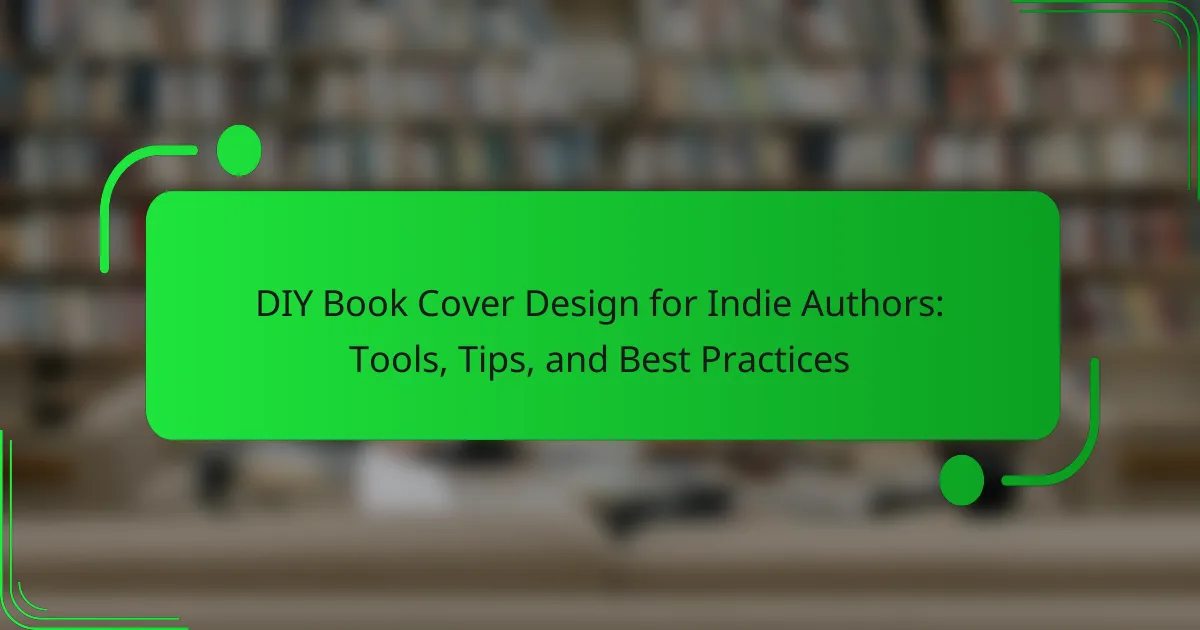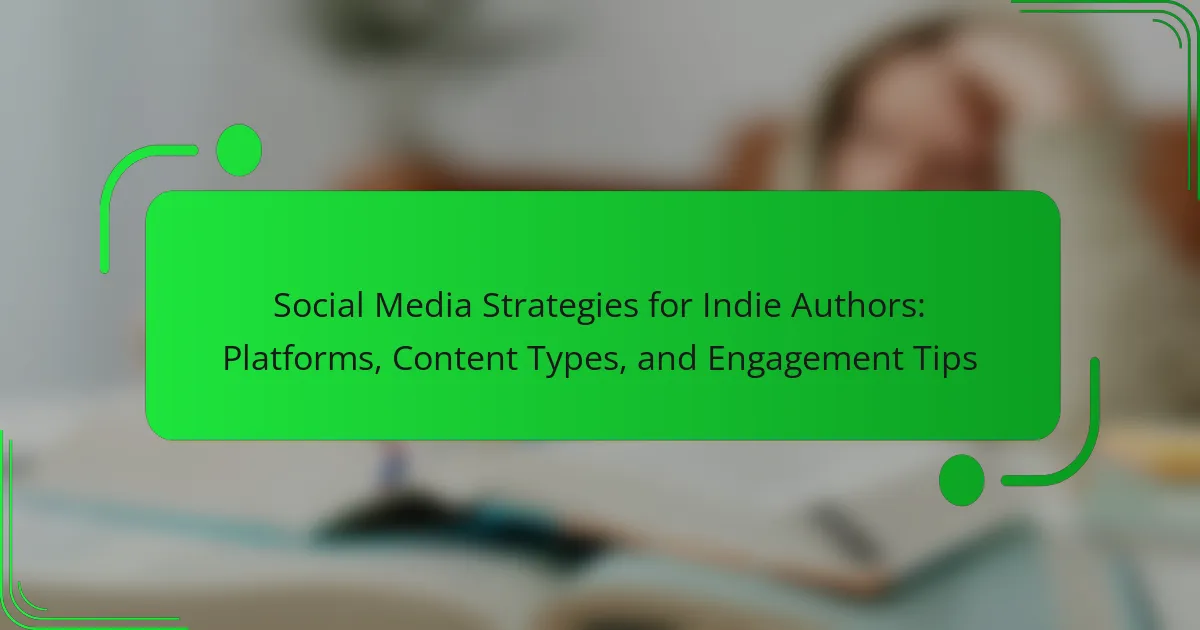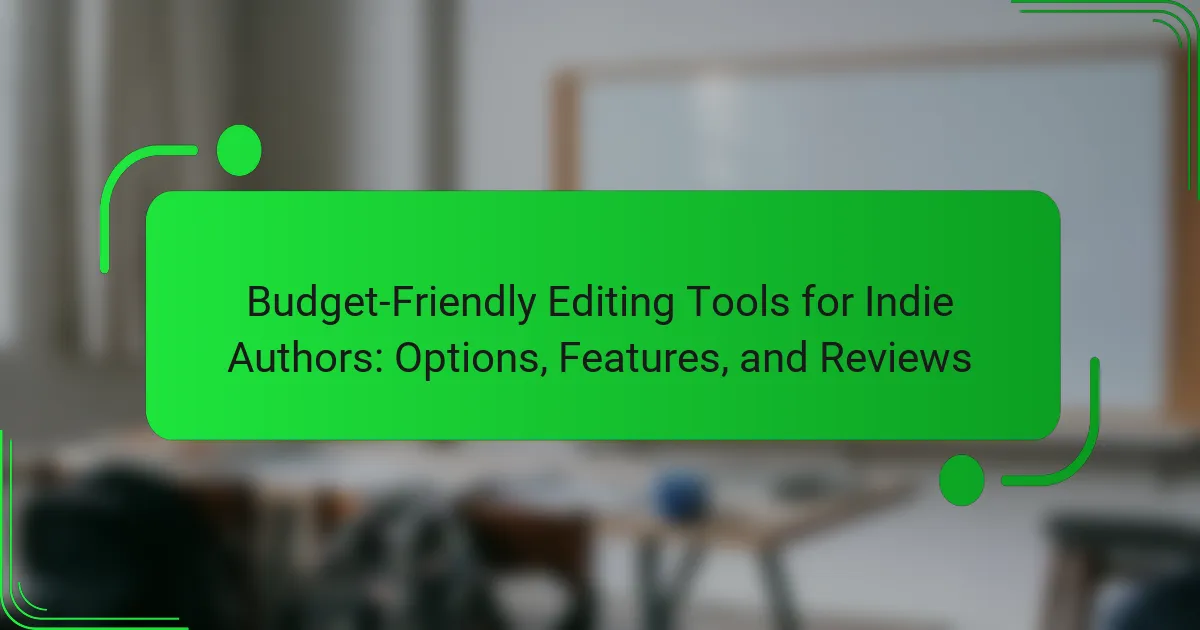Creating audiobooks as an indie author offers a unique opportunity to reach new audiences and enhance engagement. Essential tools include recording software, quality microphones, and editing programs. Selecting the right audio formats like MP3 or WAV is crucial for compatibility and sound quality. Effective distribution through platforms like ACX and Findaway Voices can maximize visibility and sales potential.
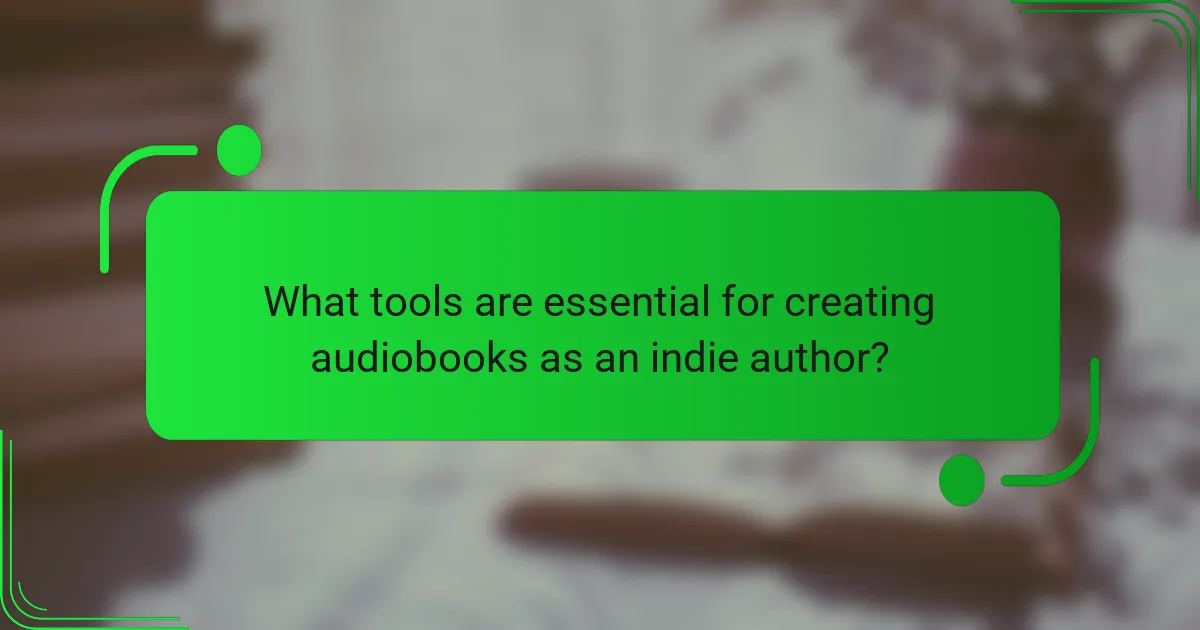
What tools are essential for creating audiobooks as an indie author?
To create audiobooks as an indie author, essential tools include recording software, quality microphones, and editing programs. Recording software like Audacity or Adobe Audition allows for high-quality sound capture. A quality microphone, such as a condenser mic, ensures clear audio. Editing programs help refine the final product, improving sound quality and removing errors. Additionally, distribution platforms like ACX or Findaway Voices facilitate reaching audiences effectively.
Which recording equipment is best for indie authors?
For indie authors, a USB microphone, audio interface, and soundproofing materials are essential for high-quality audiobook recording.
| Equipment Type | Recommended Options | Key Features |
|———————|——————————–|——————————-|
| USB Microphone | Audio-Technica ATR2100x | Versatile, plug-and-play |
| Audio Interface | Focusrite Scarlett 2i2 | High-quality preamps |
| Soundproofing | Acoustic panels | Reduces background noise |
| Headphones | Audio-Technica ATH-M50x | Accurate sound reproduction |
| Recording Software | Audacity | Free, user-friendly interface |
| Portable Recorder | Zoom H5 | High mobility, versatile uses |
What software options are available for audiobook production?
Several software options are available for audiobook production, catering to different needs and skill levels. Popular choices include Audacity, a free and open-source audio editing tool; Adobe Audition, known for its professional features; and Reaper, which offers a flexible and affordable DAW. Other notable options are GarageBand for Mac users and Hindenburg Journalist, designed specifically for audio storytelling. Each software provides unique attributes, such as multi-track editing or user-friendly interfaces, making them suitable for indie authors.
How do editing tools enhance audiobook quality?
Editing tools significantly enhance audiobook quality by improving sound clarity, consistency, and overall production value. These tools allow authors to remove background noise, adjust audio levels, and apply effects, resulting in a polished final product. For instance, noise reduction software can eliminate distractions, while equalization can balance sound frequencies for a more pleasant listening experience. Additionally, editing tools enable precise cuts and seamless transitions, ensuring that the narration flows smoothly. Ultimately, high-quality editing contributes to a more engaging and professional audiobook, appealing to a wider audience.
What role do sound design and effects play in audiobooks?
Sound design and effects enhance audiobooks by creating immersive experiences for listeners. They engage the audience, convey emotions, and provide context through auditory cues. Effective sound design can differentiate characters, set the scene, and maintain listener interest. Unique attributes, such as custom soundscapes or thematic music, can elevate an indie author’s work, making it stand out in a competitive market.
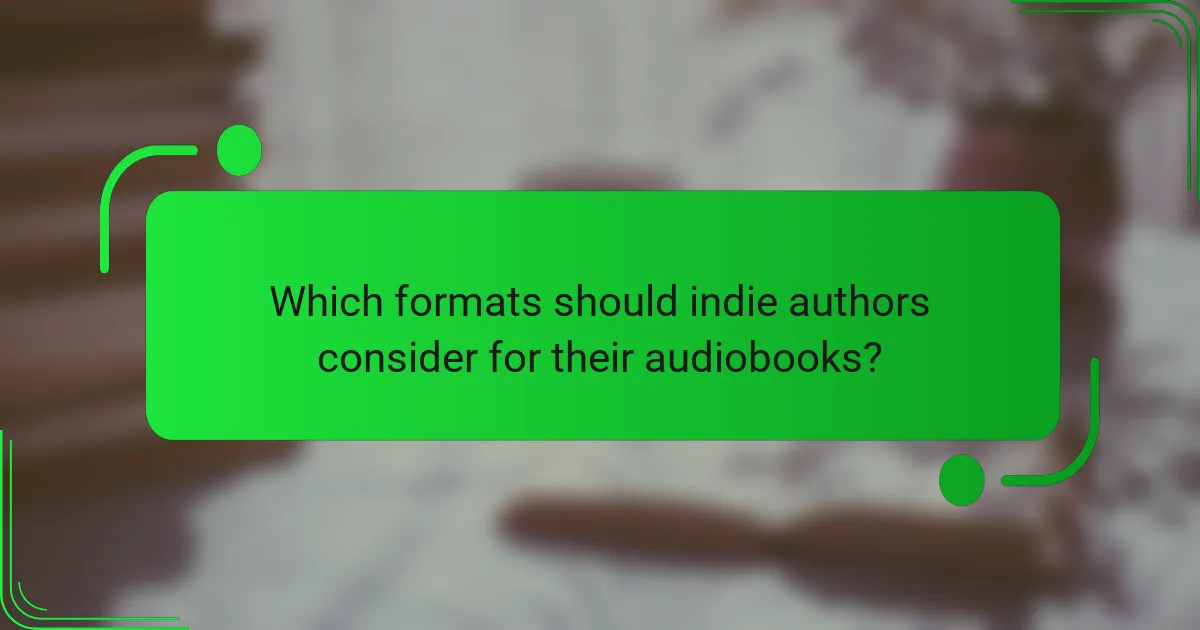
Which formats should indie authors consider for their audiobooks?
Indie authors should consider formats like MP3, AAC, and WAV for their audiobooks. Each format has unique benefits, such as MP3’s widespread compatibility, AAC’s superior quality at lower bitrates, and WAV’s high fidelity. Selecting the right format enhances listener experience and distribution potential.
What are the most popular audio file formats for audiobooks?
The most popular audio file formats for audiobooks are MP3, AAC, and WAV. MP3 is widely used due to its balance of quality and file size. AAC offers better sound quality at similar bit rates and is favored by Apple devices. WAV provides high fidelity but results in larger file sizes, making it less practical for portable use.
How does format choice affect listener experience?
Format choice significantly influences listener experience by impacting engagement and retention. Audiobooks can be produced in various formats, including MP3, M4B, and WAV, each affecting sound quality and accessibility. For instance, MP3 is widely used for its compatibility and smaller file size, enhancing accessibility across devices. In contrast, M4B allows for chapter markers and bookmarking, improving navigation for listeners. The choice of format can also dictate distribution options, with some platforms favoring specific formats, thus affecting audience reach. Ultimately, selecting the right format tailors the listening experience, catering to different preferences and enhancing overall satisfaction.
What are the benefits of different audiobook formats?
Different audiobook formats offer unique benefits that cater to diverse listener preferences. Digital formats provide portability and convenience, while CDs offer a tactile experience. Streaming services enhance accessibility, allowing users to listen on various devices. Additionally, downloadable formats enable offline access, making them ideal for travel. Each format supports distinct consumption habits, enhancing user engagement.
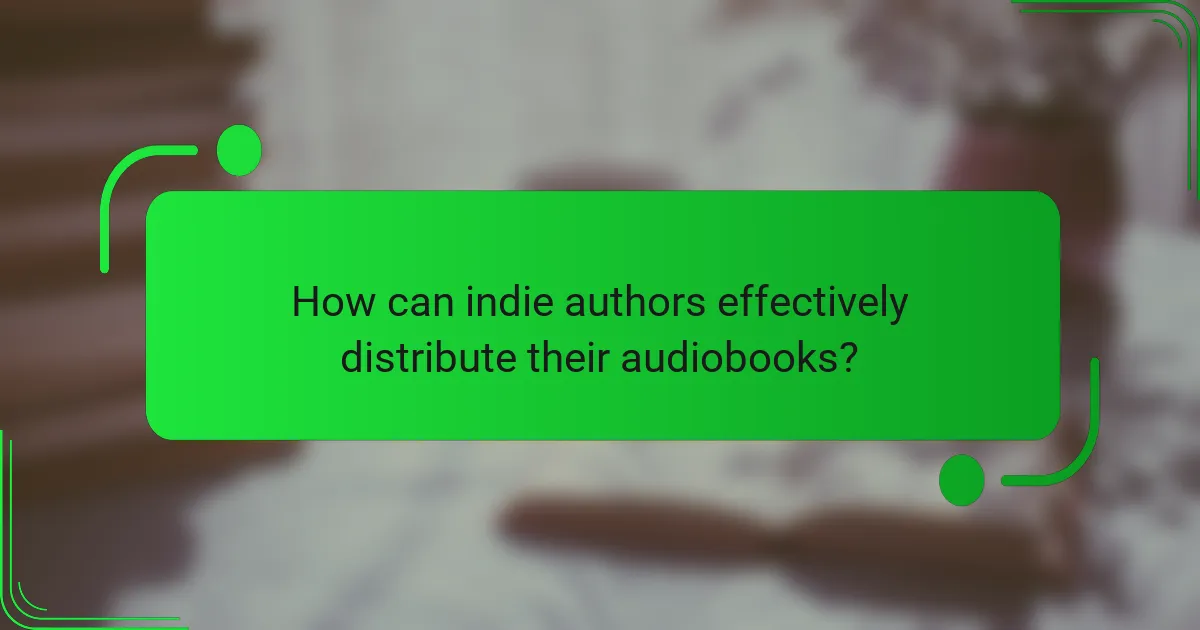
How can indie authors effectively distribute their audiobooks?
Indie authors can effectively distribute their audiobooks through various platforms and strategies. Key options include using established audiobook services like Audible and Findaway Voices, which offer broad reach and marketing support. Additionally, authors can leverage their own websites for direct sales, enhancing profit margins. Social media promotion and collaborations with influencers can further increase visibility. Engaging in audiobook-specific marketing campaigns, such as giveaways or targeted ads, can drive listener interest.
What platforms are best for audiobook distribution in various regions?
The best platforms for audiobook distribution vary by region, but some key options include Audible, Findaway Voices, and Google Play Books. These platforms provide extensive reach and cater to different markets globally.
| Platform | Regions Covered | Key Features |
|——————–|————————|—————————————|
| Audible | Global | Largest audiobook marketplace |
| Findaway Voices | Global | Wide distribution options, flexible |
| Google Play Books | Global | Integration with Google ecosystem |
| Apple Books | Global | Strong presence in iOS ecosystem |
| Kobo | North America, Europe | Focus on eBooks and audiobooks |
| Storytel | Europe, Asia | Subscription model, local content |
How do royalties and pricing models differ across platforms?
Royalties and pricing models for audiobooks vary significantly across platforms. For example, Audible offers a 40% royalty rate for authors, while platforms like Findaway Voices provide a flexible pricing model with royalties ranging from 60% to 80% depending on distribution choices. Additionally, platforms like ACX require exclusivity for higher royalty rates, while others do not. This diversity in models allows indie authors to choose options that align with their marketing strategies and revenue goals.
Which marketing strategies are most effective for promoting audiobooks?
Effective marketing strategies for promoting audiobooks include leveraging social media, utilizing email marketing, and collaborating with influencers. Social media platforms allow for targeted ads and engaging content that resonates with potential listeners. Email marketing fosters direct communication, offering exclusive content or discounts to subscribers. Collaborating with influencers can expand reach and credibility, introducing audiobooks to new audiences. Additionally, utilizing audiobook-specific platforms for distribution enhances visibility and accessibility.
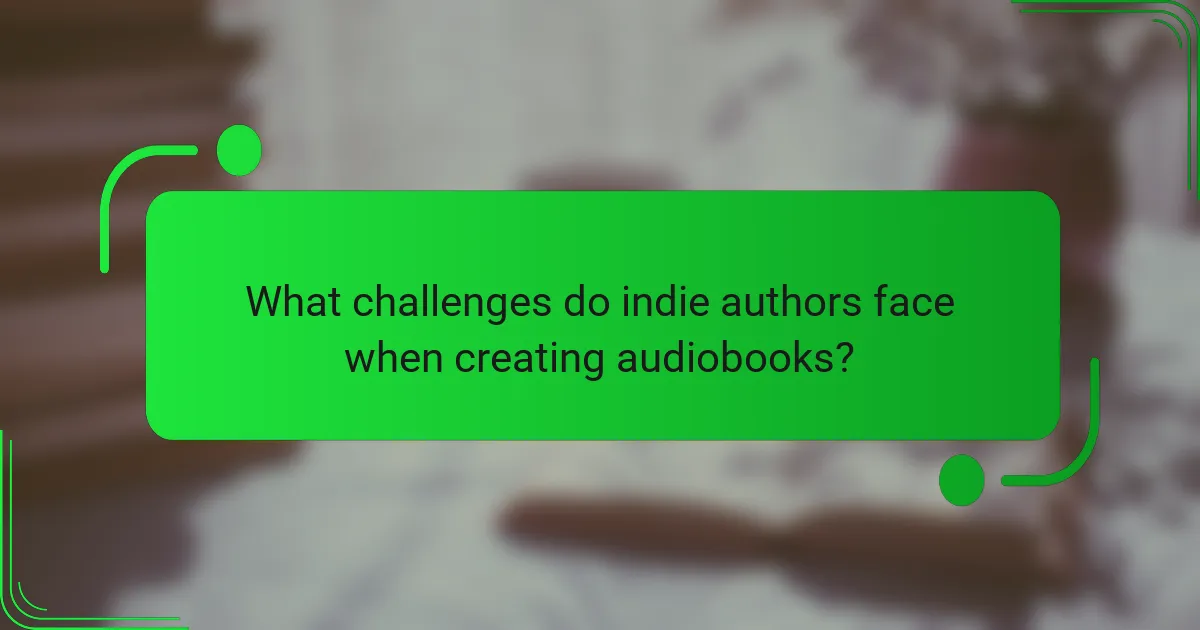
What challenges do indie authors face when creating audiobooks?
Indie authors face several challenges when creating audiobooks, including budget constraints, technical skills, and distribution knowledge. Limited financial resources often restrict access to professional narrators and high-quality recording equipment. Many indie authors lack the technical expertise required for audio editing and production, leading to subpar audio quality. Additionally, navigating audiobook distribution platforms can be complex, with varying requirements and royalties. Understanding the market and promoting the audiobook effectively also poses significant hurdles for indie authors.
How can technical difficulties be overcome in audiobook production?
Technical difficulties in audiobook production can be overcome by employing effective strategies. First, invest in quality recording equipment to ensure clear audio. Second, utilize reliable editing software to refine sound quality and remove errors. Third, establish a structured workflow to manage tasks efficiently. Collaboration with experienced audio engineers can also enhance production quality. Finally, thorough testing of the final product before distribution helps identify and resolve any remaining issues.
What are common pitfalls in audiobook marketing and distribution?
Common pitfalls in audiobook marketing and distribution include inadequate audience targeting, poor quality audio production, and neglecting multiple distribution channels. Indie authors often overlook the importance of a compelling cover design, which can significantly impact sales. Additionally, failing to leverage social media and email marketing limits reach. Authors may also underestimate the need for effective pricing strategies, which can affect competitiveness in the market. Lastly, neglecting to gather and respond to listener feedback can hinder future projects.
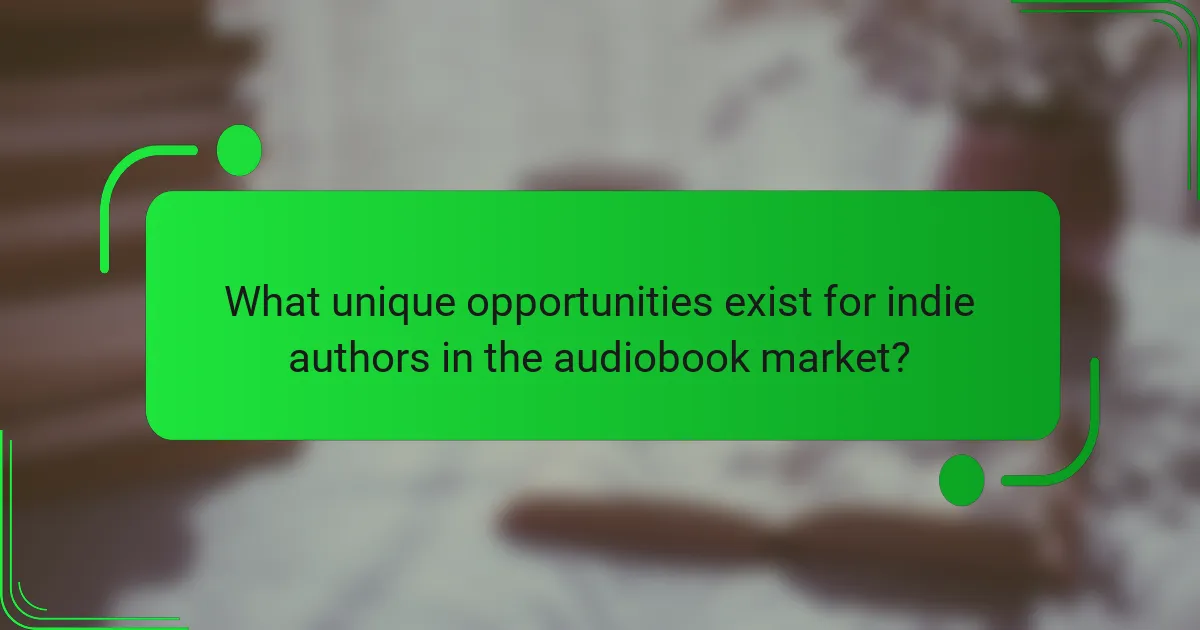
What unique opportunities exist for indie authors in the audiobook market?
Indie authors have unique opportunities in the audiobook market through accessible production tools, diverse formats, and direct distribution options. With the rise of platforms like ACX and Findaway Voices, authors can easily produce and distribute audiobooks.
The growing popularity of audiobooks, with sales reaching over $1.3 billion in 2022, creates a lucrative space for indie authors. They can leverage affordable recording equipment and software to create high-quality content.
Unique attributes include the ability to narrate their own works, allowing for a personal touch that resonates with listeners. Additionally, indie authors can explore various formats, such as serialized audiobooks or bundled packages with eBooks, enhancing their market reach.
Rare opportunities arise from niche genres, where indie authors can cater to specific audiences often overlooked by traditional publishers. This flexibility enables them to experiment with pricing strategies and promotional tactics, maximizing their potential in the audiobook landscape.
How can niche genres benefit from audiobook formats?
Niche genres can greatly benefit from audiobook formats by reaching wider audiences and enhancing engagement. Audiobooks provide accessibility, allowing listeners to enjoy content during activities like commuting or exercising. This format caters to diverse preferences, particularly for genres with dedicated fan bases. Additionally, audiobooks can offer unique narration styles that deepen the storytelling experience, making niche genres more immersive. With the rise of platforms like Audible and independent distribution options, indie authors can effectively share their niche works, expanding their readership and potential revenue streams.
What collaborative opportunities can enhance audiobook production?
Collaborative opportunities that enhance audiobook production include partnerships with narrators, audio engineers, and marketing specialists. Working with professional narrators elevates storytelling quality, while audio engineers ensure optimal sound design. Engaging marketing experts helps reach wider audiences effectively. Additionally, collaborating with other authors can lead to bundled promotions, increasing visibility and sales.
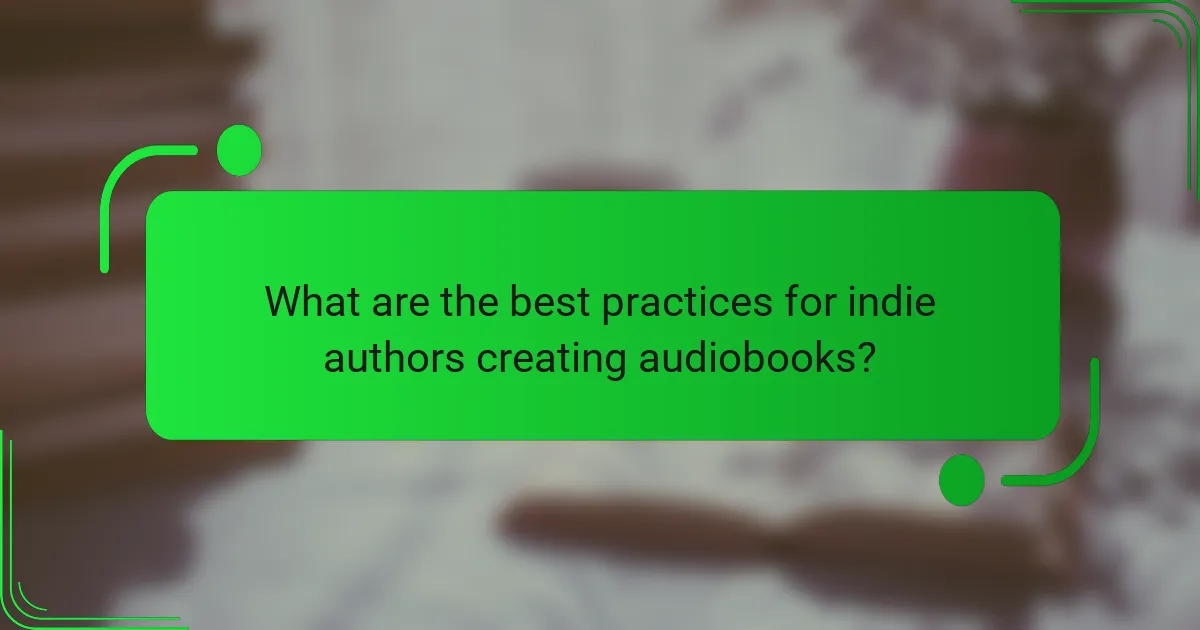
What are the best practices for indie authors creating audiobooks?
Indie authors should focus on quality recording, effective editing, and strategic distribution for successful audiobooks. Use professional recording equipment and consider hiring a voice actor for better engagement. Choose popular formats like MP3 and WAV for compatibility. Distribute through platforms like Audible, iTunes, and Google Play to reach a wider audience.
What common mistakes should indie authors avoid in audiobook production?
Indie authors should avoid several common mistakes in audiobook production to ensure quality and marketability. First, neglecting proper audio quality can lead to poor listener experiences. Second, skipping professional narration may diminish the storytelling impact. Third, ignoring distribution channels limits potential audience reach. Fourth, failing to format the audiobook correctly can create accessibility issues. Lastly, underestimating marketing efforts can result in low sales.
How can authors optimize their audiobooks for better listener engagement?
Authors can optimize their audiobooks for better listener engagement by focusing on high-quality production, effective narration, and targeted marketing strategies. High-quality sound production enhances clarity and listener experience. Engaging narration captivates the audience; consider hiring professional narrators or using advanced voice modulation tools. Additionally, promoting audiobooks through social media and author platforms increases visibility. Offering samples or free chapters can entice potential listeners, fostering deeper connections with the content.
What expert tips can help indie authors succeed in the audiobook industry?
Indie authors can succeed in the audiobook industry by focusing on quality production, effective marketing, and strategic distribution. Invest in professional narration to enhance audio quality and engage listeners. Utilize platforms like ACX or Findaway Voices for distribution to reach wider audiences. Leverage social media and author websites for marketing to build a loyal listener base. Consider offering promotional pricing or free samples to attract new listeners and encourage reviews.
